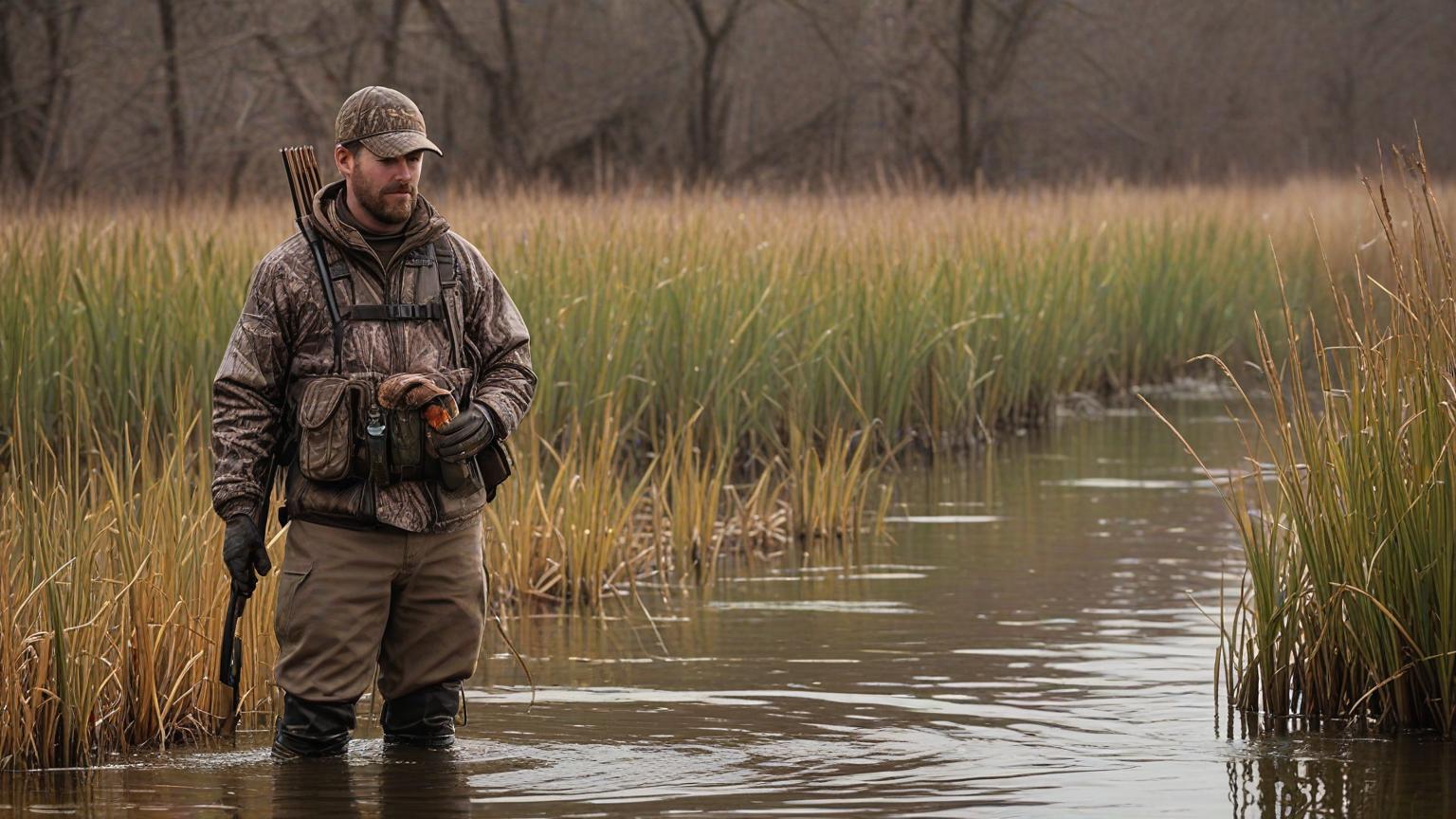Duck hunting in Arkansas offers two distinct experiences in the early and late seasons, each with its own challenges and strategies. Early season hunting typically means warmer weather, less pressured ducks, and an emphasis on scouting, while late season brings colder conditions, wary birds, and the need for extra camouflage and patience. Here’s how to adapt your approach for each season to maximize success.
Early Season Duck Hunting Preparation
1. Scout Regularly
In early season, ducks are still establishing patterns, so regular scouting is key. Monitor local wetlands, rice fields, and rivers to see where ducks are feeding and resting. Early season ducks are usually less pressured, so being in the right spot can make all the difference.
2. Light Clothing and Gear
With milder weather in early season, go for lighter, breathable clothing. A light camo jacket, chest waders, and moisture-wicking layers will keep you comfortable without overheating.
3. Use Simple Decoy Spreads
Early season ducks are generally less wary and respond well to smaller decoy spreads. A few strategically placed decoys in realistic positions can be highly effective without overwhelming early-season flocks.
4. Prioritize Calling Technique
Ducks in early season respond well to soft, natural calling. Keep calls simple and avoid aggressive tactics. Less pressured ducks often respond better to a light touch, making subtle quacks, whistles, or feeding chuckles ideal.
Late Season Duck Hunting Preparation
1. Adapt to Colder Weather
Late season in Arkansas can be cold, requiring heavier clothing and gear. Opt for insulated waders, layered clothing, and waterproof jackets. Hand warmers and a thermos can also help on frosty mornings.
2. Increase Concealment
Ducks become more cautious later in the season, so effective concealment is crucial. Improve your blind setup, blend in with natural surroundings, and use additional cover. Using natural materials like reeds or grasses around your blind can make a difference in getting close.
3. Use Larger Decoy Spreads
With ducks flying in larger flocks and becoming wary of hunters, a larger decoy spread can help. Try setting up more decoys in various formations to simulate a feeding flock. Motion decoys can also draw attention, adding realism that attracts late-season birds.
4. Adjust Calling for Wary Ducks
Late season birds are often call-shy. Be patient and use sparing calls to avoid spooking them. Watch for body language—if ducks respond negatively, dial back the calling. Subtle, realistic calls can make the difference in attracting these wiser, late-season birds.
Conclusion
Early and late season duck hunting in Arkansas require different strategies in terms of scouting, gear, decoys, and calling. By adjusting your approach to the season’s conditions and duck behavior, you’ll be well-prepared for both the excitement of the early season and the challenges of late-season hunting.

